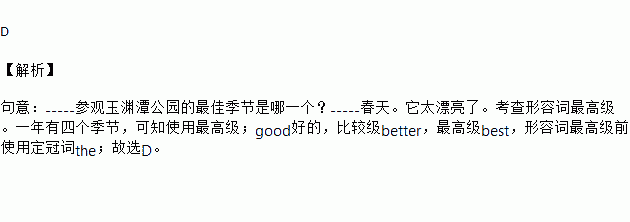题目内容
—Which is _________ season to visit Yuyuantan Park?
—Spring. It's fantastic.
A.good B.better C.best D.the best
练习册系列答案
相关题目
书面表达
假如你是刘云, 现在的你和两年前相比, 有很大变化。对于将来, 你有很多憧憬, 请根据下表写一篇短文。
Two years ago | Now | In thirteen years | |
身份 | a primary school student | a Grade 8 student | a doctor |
外貌 | 矮,短发 | 高了些,头发和以前一样短 | 高得多 |
个性 | 害羞,朋友少 | 更外向,朋友更多 | 自信confident,友好 |
爱好 | 弹钢琴 | 每周打两次乒乓球 | \ |
理想 | 钢琴家 | 长大后当医生 | \ |
______________________________________________________________________________________________________________________________________________________________________________________________________

